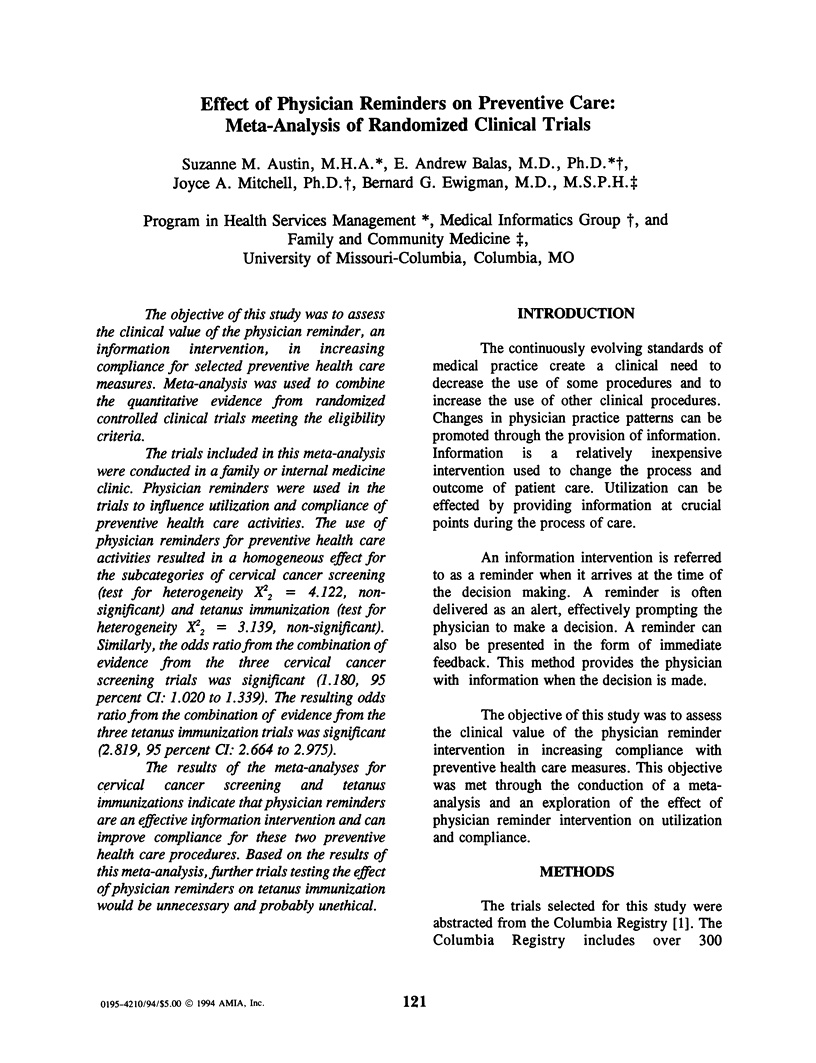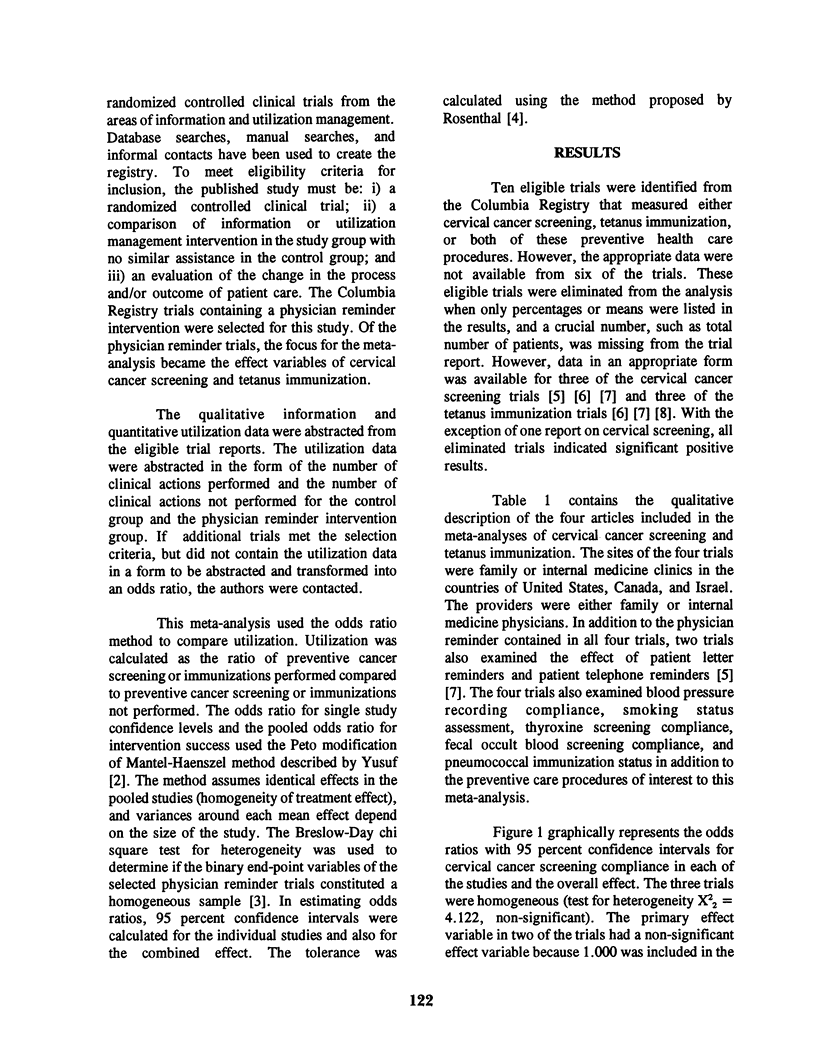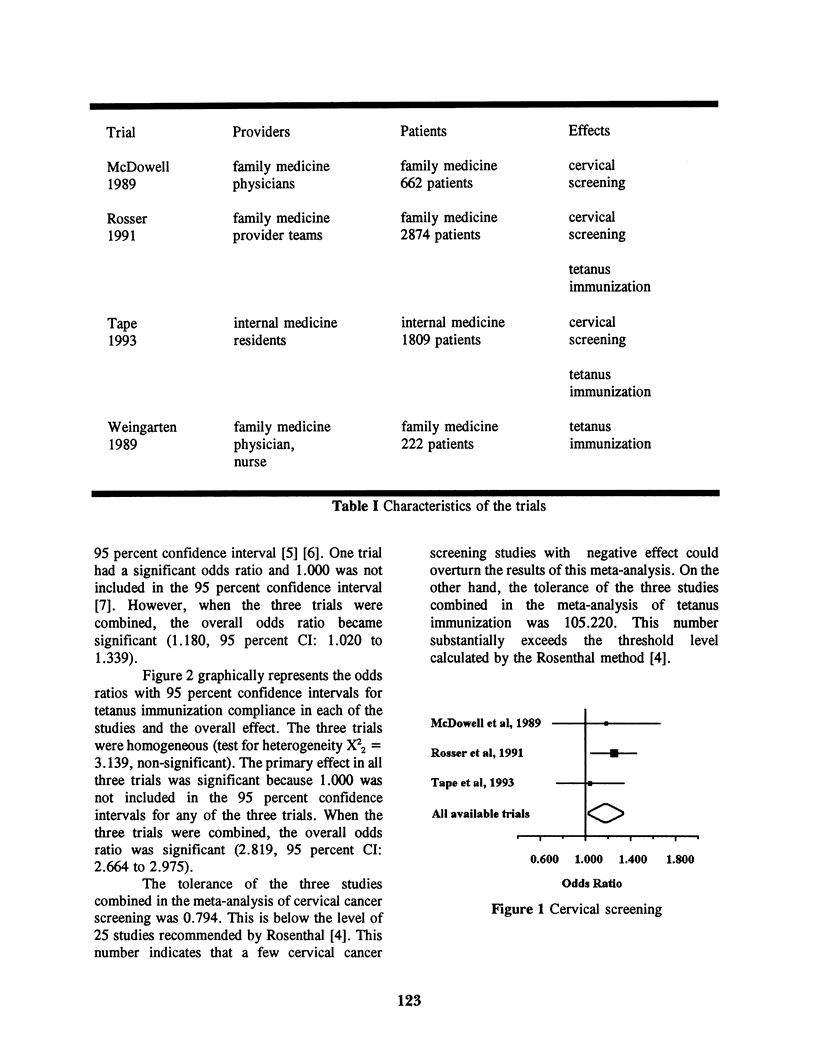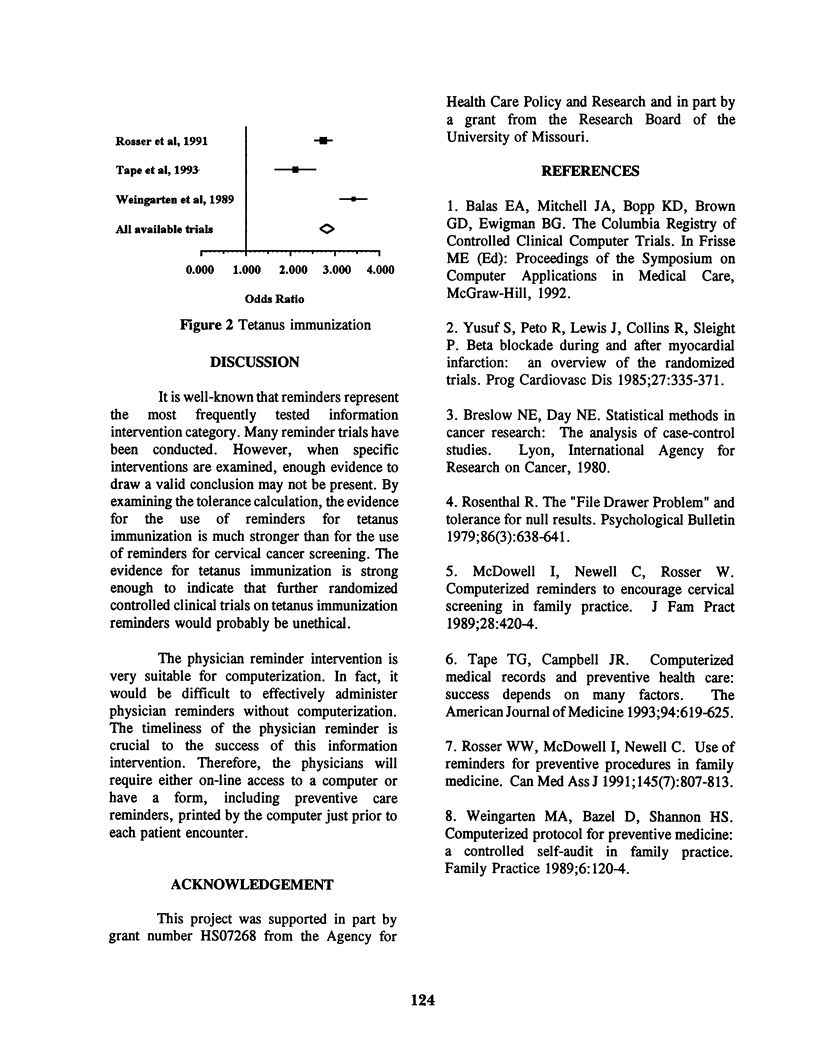Abstract
The objective of this study was to assess the clinical value of the physician reminder, an information intervention, in increasing compliance for selected preventive health care measures. Meta-analysis was used to combine the quantitative evidence from randomized controlled clinical trials meeting the eligibility criteria. The trials included in this meta-analysis were conducted in a family or internal medicine clinic. Physician reminders were used in the trials to influence utilization and compliance of preventive health care activities. The use of physician reminders for preventive health care activities resulted in a homogeneous effect for the subcategories of cervical cancer screening (test for heterogeneity X2(2) = 4.122, non-significant) and tetanus immunization (test for heterogeneity X2(2) = 3.139, non-significant). Similarly, the odds ratio from the combination of evidence from the three cervical cancer screening trials was significant (1.180, 95 percent CI: 1.020 to 1.339). The resulting odds ratio from the combination of evidence from the three tetanus immunization trials was significant (2.819, 95 percent CI: 2.664 to 2.975). The results of the meta-analyses for cervical cancer screening and tetanus immunizations indicate that physician reminders are an effective information intervention and can improve compliance for these two preventive health care procedures. Based on the results of this meta-analysis, further trials testing the effect of physician reminders on tetanus immunization would be unnecessary and probably unethical.
Full text
PDF



Selected References
These references are in PubMed. This may not be the complete list of references from this article.
- McDowell I., Newell C., Rosser W. Computerized reminders to encourage cervical screening in family practice. J Fam Pract. 1989 Apr;28(4):420–424. [PubMed] [Google Scholar]
- Rosenthal R., Kleid J. J., Cohen M. V. Abnormal mitral valve motion associated with ventricular septal defect following acute myocardial infarction. Am Heart J. 1979 Nov;98(5):638–641. doi: 10.1016/0002-8703(79)90291-6. [DOI] [PubMed] [Google Scholar]
- Rosser W. W., McDowell I., Newell C. Use of reminders for preventive procedures in family medicine. CMAJ. 1991 Oct 1;145(7):807–814. [PMC free article] [PubMed] [Google Scholar]
- Tape T. G., Campbell J. R. Computerized medical records and preventive health care: success depends on many factors. Am J Med. 1993 Jun;94(6):619–625. doi: 10.1016/0002-9343(93)90214-a. [DOI] [PubMed] [Google Scholar]
- Weingarten M. A., Bazel D., Shannon H. S. Computerized protocol for preventive medicine: a controlled self-audit in family practice. Fam Pract. 1989 Jun;6(2):120–124. doi: 10.1093/fampra/6.2.120. [DOI] [PubMed] [Google Scholar]
- Yusuf S., Peto R., Lewis J., Collins R., Sleight P. Beta blockade during and after myocardial infarction: an overview of the randomized trials. Prog Cardiovasc Dis. 1985 Mar-Apr;27(5):335–371. doi: 10.1016/s0033-0620(85)80003-7. [DOI] [PubMed] [Google Scholar]


